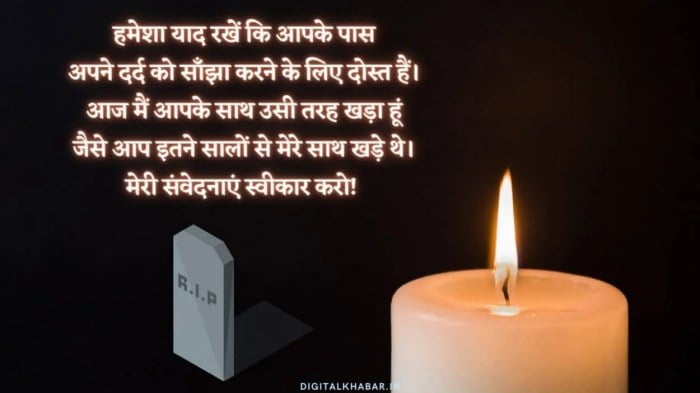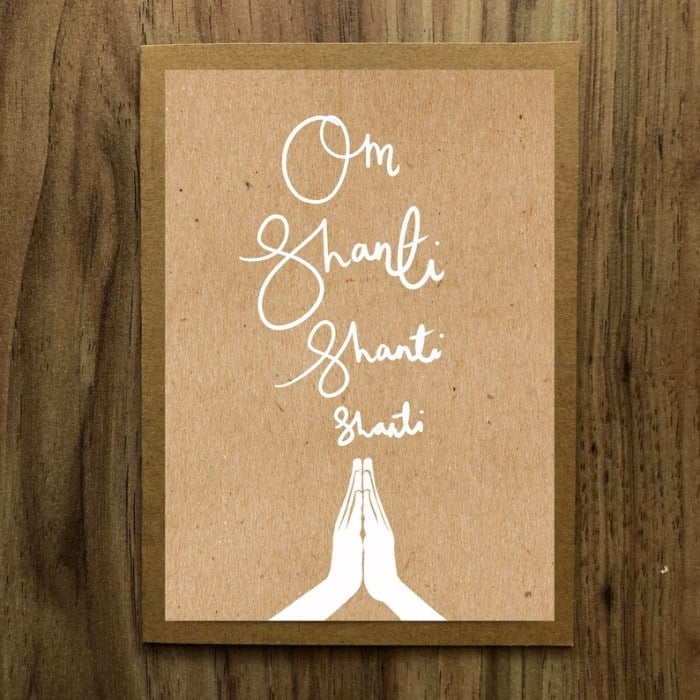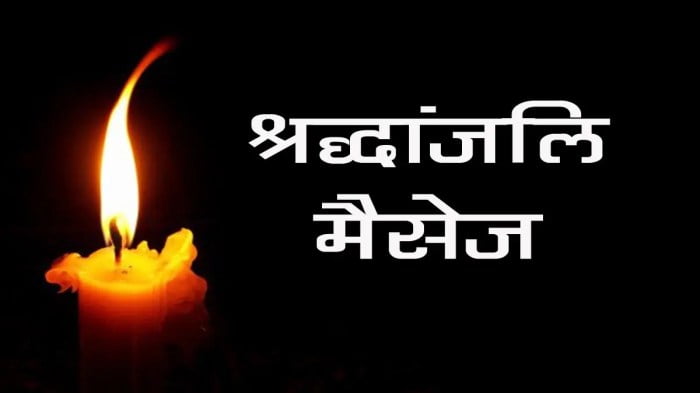In the tapestry of human experience, the loss of a loved one is a profound and universal sorrow. For Hindus, this grief is imbued with a deep sense of spirituality and cultural traditions that shape the expression of condolences. Hindu condolence messages serve as a means to convey empathy, offer comfort, and uphold the values of compassion and unity during times of mourning.
Rooted in ancient scriptures and beliefs, Hindu condolence messages are not merely words of solace but an integral part of the mourning process. They reflect the belief in the eternal soul’s journey, the significance of remembrance, and the power of community support in overcoming grief.
Introduction

In the Hindu culture, expressing condolences is considered a solemn and respectful gesture that acknowledges the profound loss experienced by a bereaved family. Condolence messages play a significant role in Hindu rituals, as they serve as a means to convey empathy, support, and solidarity with those who are grieving.
Offering condolences is seen as a sacred duty, an act of compassion that honors the departed soul and provides comfort to the bereaved. Through these messages, Hindus express their deepest sympathies and acknowledge the pain and sorrow felt by the grieving family.
Purpose and Role of Condolence Messages
Condolence messages in Hindu rituals serve several important purposes:
- Acknowledging the Loss: By expressing condolences, individuals acknowledge the death of the departed person and recognize the profound grief experienced by the bereaved family.
- Offering Support and Empathy: Condolence messages convey heartfelt support and empathy to the grieving family. They demonstrate a genuine understanding of the pain and sorrow they are going through.
- Expressing Solidarity: Through condolences, individuals express their solidarity with the bereaved family, assuring them that they are not alone in their grief and that the community stands with them during this difficult time.
- Honoring the Departed: Condolence messages honor the memory of the departed person. They may include fond memories, anecdotes, or expressions of gratitude for the life lived.
- Offering Prayers and Blessings: In Hindu rituals, condolence messages often include prayers and blessings for the departed soul, seeking peace and liberation for the deceased.
Cultural Considerations

Comprehending Hindu cultural norms and customs related to death and mourning is pivotal in composing a heartfelt condolence message. These customs and traditions greatly influence the content and tone of the message, demonstrating respect and understanding for the bereaved family’s beliefs and practices.
In Hindu tradition, death is seen as a transition to another realm of existence. Funeral rituals and ceremonies are elaborate and hold deep religious significance. The period of mourning is typically observed for 13 days, during which family members and friends offer prayers and perform rituals to help the departed soul find peace and liberation.
Significance of Respectful Language
When expressing condolences, it is crucial to use respectful language and avoid phrases that may be insensitive or offensive. For example, instead of saying “I’m sorry for your loss,” it is more appropriate to say “I offer my deepest condolences during this difficult time.”
Additionally, it is important to avoid making comparisons to other losses or using clichés that may diminish the significance of the family’s grief.
Offer Practical Support
In addition to expressing sympathy, it is customary to offer practical support to the bereaved family. This could include assisting with funeral arrangements, providing meals, or offering to run errands. In some cases, financial assistance may also be appropriate, but it is important to offer this discreetly and respectfully.
Religious Considerations
Hinduism encompasses a diverse range of beliefs and practices, and it is important to be mindful of the specific religious beliefs of the bereaved family. If you are unsure about the family’s religious customs, it is best to err on the side of caution and avoid making any references to specific religious beliefs or practices.
Tone and Language
Crafting a Hindu condolence message demands an approach that respects their religious beliefs, values, and cultural norms. In essence, it’s about showing empathy, solidarity, and a deep understanding of their grief.
Hindu condolences prioritize sincerity, simplicity, and sensitivity. They aim to offer comfort and support while acknowledging the spiritual journey of the deceased.
Respectful Language
Here are guidelines for respectful language in Hindu condolences:
- Use respectful salutations such as “Om Shanti” (Peace) or “Pranam” (Humble Greetings).
- Acknowledge the deceased’s soul’s eternal journey, referring to their passing as “moksha” (liberation).
- Express condolences with phrases like “My heartfelt condolences for this immense loss” or “May the departed soul find eternal peace.”
- Offer support by saying, “I am here for you during this difficult time” or “Please know that our thoughts and prayers are with you.”
- Avoid phrases that imply finality or closure, such as “They are gone forever” or “This is the end.”
- Focus on the positive aspects of the deceased’s life and their contributions to the family and community.
- Offer to help with practical matters, such as funeral arrangements or providing meals for the family.
Cultural Considerations
Additionally, consider these cultural aspects:
- In some Hindu traditions, it’s customary to visit the family of the deceased and offer condolences in person. If you can’t visit, a phone call or a heartfelt letter is appropriate.
- Hindus typically observe a period of mourning, which may last for 13 days or longer. During this time, they may refrain from certain activities, such as attending social events or listening to loud music.
- Offer to help with any religious rituals or ceremonies that the family may be observing.
- Respect the family’s privacy and avoid asking intrusive questions about their grief or the circumstances of the death.
Structure and Content
Crafting a heartfelt condolence message for a Hindu family requires a mindful approach that incorporates cultural nuances and expressions of sympathy. The structure of the message should include key elements that convey respect, empathy, and comfort.
Essential elements of a Hindu condolence message include:
- Salutations: Begin the message with a respectful salutation that acknowledges the recipient’s loss. Common salutations include “Om Shanti” or “Namaste.”
- Expressions of Sympathy: Express your sincere condolences and empathy for the family’s loss. Use phrases that convey your understanding of their grief, such as “My heart goes out to you” or “I am deeply saddened by your loss.”
- Offer Support: Let the family know that you are there for them during this difficult time. Offer your support in any way that you can, such as providing practical assistance, emotional support, or simply being present for them.
- Mention of the Deceased: If appropriate, mention the deceased person’s name and qualities. Share fond memories or anecdotes that highlight their positive impact on your life or the community. This can be a comforting way to honor their memory.
- Hindu Symbols, Prayers, or Verses: Incorporate meaningful Hindu symbols, prayers, or verses that offer comfort and guidance during times of grief. Some common symbols include the Om symbol, the lotus flower, and the conch shell. Prayers and verses can be found in sacred Hindu texts such as the Bhagavad Gita or the Upanishads.
- Concluding Remarks: End the message with a brief but sincere expression of your continued support and prayers for the family’s well-being.
Sample Hindu Condolence Message
Namaste,
I am deeply saddened to hear about the passing of your beloved [Name of the Deceased]. My heart goes out to you and your family during this difficult time.
I had the privilege of knowing [Name of the Deceased] for [Number] years, and I will always cherish the memories we shared. [He/She] was a kind and compassionate person who always brought joy and laughter to those around [him/her].
In this time of grief, I find solace in the teachings of the Bhagavad Gita, which reminds us that the soul is eternal and that death is merely a transition. May [Name of the Deceased] find peace and liberation in the eternal realm.
As you navigate this difficult journey, please know that I am here for you in any way I can. Whether you need a listening ear, a helping hand, or simply a shoulder to cry on, I am here for you.
May Lord Shiva grant you strength and courage during this time of sorrow. Om Shanti.
Examples and Variations
Condolence messages in Hinduism vary based on the relationship with the deceased and the circumstances of their passing. The following table provides examples of Hindu condolence messages for different relationships and situations:
Table: Hindu Condolence Messages for Various Relationships and Circumstances
| Relationship | Condolence Message |
|---|---|
| Family Member | “May Lord Shiva grant you strength and peace during this difficult time. We are here for you and will support you in any way we can.” |
| Friend | “My deepest condolences to you and your family. Your friend was a wonderful person, and they will be dearly missed.” |
| Colleague | “I was saddened to hear about the passing of your colleague. They were a valued member of our team, and they will be greatly missed.” |
| Sudden Death | “I am shocked and saddened to hear about the sudden passing of your loved one. My thoughts and prayers are with you during this difficult time.” |
| Accidental Death | “I am deeply sorry for the tragic loss of your loved one. May Lord Vishnu give you strength and courage to cope with this immense pain.” |
| Loss of a Child | “There are no words to express the pain of losing a child. May Lord Krishna hold you in his loving embrace and comfort you during this difficult time.” |
Personalized Messages
In addition to the general messages above, you can also personalize your condolence message to address specific circumstances or memories of the deceased. For example:
- “I remember when your father used to tell the funniest stories at family gatherings. He will be deeply missed.”
- “Your mother was such a kind and compassionate person. She always had a smile on her face and a warm word for everyone she met.”
- “I had the pleasure of working with your brother for many years. He was a dedicated and talented colleague, and he will be greatly missed by all who knew him.”
When writing a personalized condolence message, it is important to be sincere and genuine. Share your memories of the deceased and express your sympathy for the bereaved family. Your words can provide comfort and support during this difficult time.
Conveyance and Delivery
Hindu condolence messages can be conveyed through various methods, each holding cultural and practical significance.
The choice of conveyance method depends on factors such as the relationship with the bereaved family, proximity, and personal preferences.
Written Notes
Written notes, often in the form of condolence cards or letters, are a traditional and widely accepted way to express condolences to a Hindu family.
- Significance: Written notes allow for thoughtful and personalized expressions of sympathy, offering comfort and support during the grieving process.
- Delivery: Condolence notes can be hand-delivered, mailed, or sent via online platforms.
- Timing: It is considered appropriate to send condolence notes within a few days or weeks after the loss.
Verbal Expressions
Verbal expressions of condolence are common in Hindu communities, where face-to-face interactions hold cultural importance.
- Significance: Verbal expressions allow for immediate and heartfelt condolences, providing a sense of comfort and solidarity to the bereaved family.
- Delivery: Verbal condolences can be expressed in person, over the phone, or through video calls.
- Timing: Verbal condolences are typically offered during the funeral or memorial service, or during a visit to the family’s home.
Online Platforms
With the increasing use of technology, online platforms have become a convenient way to convey Hindu condolence messages.
- Significance: Online platforms allow for the expression of condolences from distant relatives, friends, and acquaintances who may not be able to attend the funeral or visit the family in person.
- Delivery: Condolences can be expressed through social media posts, online condolence books, or dedicated websites.
- Timing: Online condolences can be sent anytime after the news of the loss is shared.
Etiquette and Protocol

In Hindu culture, expressing condolences is a solemn and respectful practice guided by specific etiquette and protocol. These guidelines ensure that mourners feel supported and comforted during their time of grief.
When offering condolences, it is customary to approach the bereaved family with a calm and composed demeanor. Maintain a respectful distance and avoid physical contact unless it is culturally appropriate or if the family initiates it. Gestures such as bowing or joining hands in a prayer position can convey your empathy and respect.
Attire
Dressing appropriately is a sign of respect for the deceased and their family. Choose modest and somber clothing in neutral colors. Avoid wearing bright or flashy colors, as they may be seen as disrespectful.
Religious Leaders and Community Members
In some Hindu communities, religious leaders or community members play a significant role in facilitating the condolence process. They may offer spiritual guidance, conduct religious ceremonies, or assist in organizing the funeral arrangements. If you are unfamiliar with the customs of the bereaved family, it is advisable to inquire about the role of religious leaders or community members and follow their guidance.
Additional Resources
To deepen your understanding of Hindu condolence practices and mourning rituals, explore the following resources:
These resources offer valuable insights into the cultural nuances and religious significance associated with Hindu condolences.
Recommended Books
- Hindu Rites of Passage: Death and Mourning in the Hindu Tradition by Colleen Taylor Sen
- Death and Ritual in Hindu Culture by Brian K. Smith
- The Hindu Funeral: A Guidebook for the Living by Thomas B. Coburn
Helpful Articles
- “Hindu Funeral Rites and Rituals: A Comprehensive Guide” by The Hindu American Foundation
- “Mourning and Bereavement in Hinduism” by Swami Harshananda
- “Hindu Beliefs About Death and the Afterlife” by About.com
Informative Websites
- Hinduism Today: https://www.hinduismtoday.com/
- The Hindu American Foundation: https://www.hinduamerican.org/
- Swami Harshananda: https://www.swamiharshananda.org/
Additional Research Topics
- The role of karma and reincarnation in Hindu mourning practices
- The significance of rituals and ceremonies in Hindu condolences
- The role of the family and community in Hindu mourning
- The impact of modernization and globalization on Hindu condolence practices
Conclusion
Hindu condolence messages, with their blend of empathy, cultural sensitivity, and spiritual insight, provide a beacon of support during times of sorrow. They are a testament to the enduring bonds of community and the belief in the continuity of life beyond physical existence.
As we navigate the delicate terrain of grief, these messages serve as a reminder of the shared human experience and the power of compassion in healing wounds and fostering resilience.
Frequently Asked Questions
What are some key considerations when composing a Hindu condolence message?
When crafting a Hindu condolence message, it is essential to understand and respect Hindu cultural norms and beliefs related to death and mourning. Use respectful and sensitive language, avoiding terms that may be considered offensive or dismissive. Consider incorporating meaningful Hindu symbols, prayers, or verses to convey your heartfelt condolences.
How should I convey my condolences in Hindu culture?
In Hindu culture, condolences can be conveyed through written notes, verbal expressions, or online platforms. It is considered appropriate to offer condolences in person, if possible, as it demonstrates your genuine care and support. If sending a written note, ensure it is handwritten and contains a personal touch.
When expressing condolences verbally, speak in a soft and respectful tone, avoiding loud or boisterous behavior.
What is the significance of timing when sending Hindu condolences?
In Hindu culture, it is customary to send condolences as soon as possible after learning of the loss. However, it is important to be mindful of the family’s immediate needs and allow them time to grieve privately. Avoid sending condolences during religious ceremonies or rituals, as this may be seen as disruptive or disrespectful.